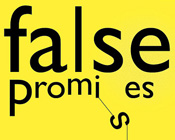 If I was in a room full of guests and asked the following question: “how many of you have had a pop-up appear that claimed to ‘fix a virus’ or ‘clean your computer’ while searching for information on the internet?” I believe most people in the room would raise their hand.
If I was in a room full of guests and asked the following question: “how many of you have had a pop-up appear that claimed to ‘fix a virus’ or ‘clean your computer’ while searching for information on the internet?” I believe most people in the room would raise their hand.
If I were to ask those who raised their hand, to keep their hand up if they had clicked on such a pop-up, most would remain with their hand up.
The internet is a haven for criminals to mislead innocent victims for financial gain. Most will infect a computer with a small computer program known as ‘malware’ (malicious software) viruses and ‘spyware’. More recently, ‘scareware’ has also surfaced.
These programs come in various guises. A virus program has the potential to cause serious damage to your computer system and in a worse case scenario, delete files.
Computer technicians spend hours fixing infected computers, while customers shelve out hundreds of dollars to get the problem rectified. Understanding how these attacks work, and their intent will help prevent future infections.
Both malware and spyware are designed to sit idle on your computer collecting information. These programs are able to send the information back to the criminal. The criminal then examines the data in the hope of collecting personal information such as banking details, birthdates, addresses and credit card details that can be used for criminal gain.
These programs sometimes have the ability to act as a ‘magnet’ for further advertising pop-ups and more malware.
Malware is not only restricted to informing you of potential viruses or wanting to clean your computer, it could be a myriad of enticing offers about practically anything.
Scareware is a growing trend whereby the message in a pop-up is designed to ‘trick’ the victim into clicking it. An example of this may be a flashing message indicating you have a number of viruses. ‘Click here to clean your machine’. When a user clicks the link, the infecting program is downloaded.
Our previous article told you about the top 10 scams to be aware of. We would like to thank Ross Muir, Computer Technician, who has provided us a list of 78 rogue anti-virus / anti-spyware programs to watch out for:
| • Advanced Cleaner | • AlfaCleaner | • AntiSpyCheck 2.1 |
| • AntiSpyStorm | • AntiSpywareBot | • AntiSpywareExpert |
| • AntiSpywareMaster | • AntiSpywareSuite | • AntiSpyware 2008 XP |
| • Antivermins | • Antivirgear | • Antivirus 2008 |
| • Antivirus 2009 | • AntiVirus Gold | • Antivirus Master |
| • Antivirus XP 2008 | • Awola 6.0 | • Brave Sentry |
| • BestsellerAntivirus | • Cleanator | • ContraVirus Doctor Antivirus |
| • DriveCleaner | • Disk Knight | • EasySpywareCleaner |
| • Errorsafe | • free-viruscan.com | • IE Antivirus |
| • IEDefender | • InfeStop | • KVMSecure |
| • MacSweeper | • MalCrush 3.7 | • MalwareCore |
| • MalwareAlarm | • Malware Bell 3.2 | • PCSecureSystem |
| • PC Antispy | • PC Clean Pro | • PC SpeedScan Pro |
| • PestTrap | • Perfect Cleaner PAL Spyware Remover | • PCPrivacytool |
| • PC-Antispyware | • PSGuard | • SecurePCCleaner |
| • Security toolbar 7.1 | • SpyAxe | • Spy Away |
| • SpyCrush | • Spydawn | • SpyGuarder |
| • SpyHeal | • Spylocked | • SpySheriff |
| • SpySpotter | • Spyware Cleaner | • Spyware Quake |
| • Spyware Stormer | • SpywareStrike | • Spy-RidSpyWiper |
| • System Live Protect | • SystemDoctor | • TrustedAntivirus |
| • TheSpyBot | • UltimateCleaner | • VirusHeat |
| • Virus Isolator | • VirusProtectPro | • VirusRanger |
| • Vista Antivirus 2008 | • WinAntiVirus Pro 2006 | • WinFixer |
| • WinSpyware Protect | • WorldAntiSpy | • XP Antivirus |
While some of these programs are more visible than others, particularly the WinFixer (Antivirus 2008, Antivirus 2009), it is by no means a complete list.
Some of these programs, once infecting a computer, can be difficult to remove. New variants will always appear on the internet.
Help spread the knowledge to others, so they too can be educated about these computer infections. Think before you click.
Courtesy of Dean Stewart – WebSafety NZ.









Join the Discussion
Type out your comment here:
You must be logged in to post a comment.